Boost Health with Zinc-Rich Vegan Foods: Your Ultimate Guide
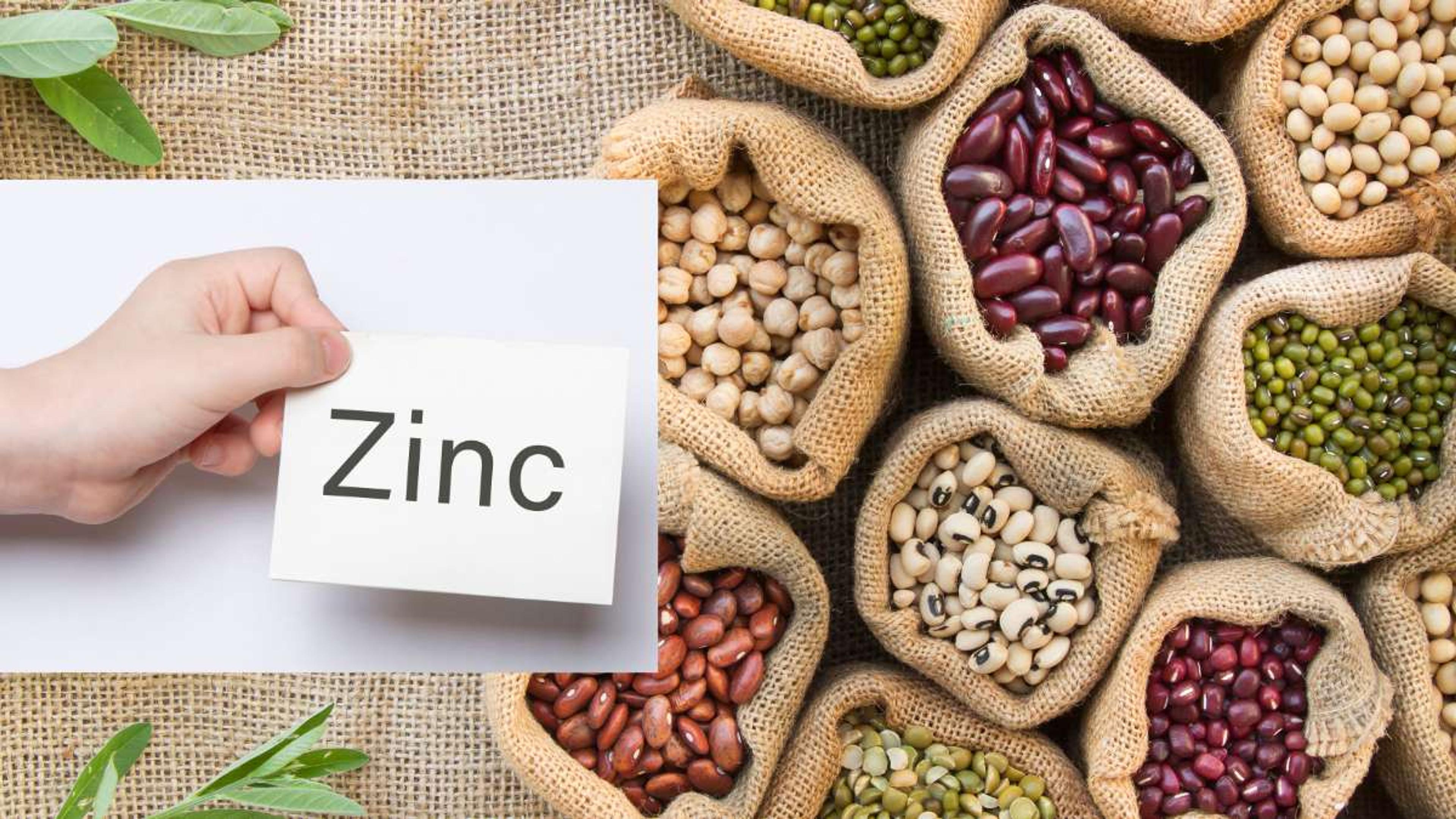
- Key Takeaways
- What is Zinc, Daily Nutritional Need and why is it important?
- List of Zinc-Rich Plant-Based Foods
- Zinc Supplements for Plant-Based Diets
- Health Benefits and Symptoms of Deficiency of Zinc
- How to Incorporate Zinc-Rich Foods into a Vegetarian Diet
- Enhancing Zinc Absorption in a Vegan Diet
- Conclusion
- FAQs
Feeling groggy, lethargic, or just down-right off? It could be that you're not getting enough zinc in your vegan diet. This blog post is your ultimate guide to the best plant-based sources of this essential mineral, including how much you really need and why it's crucial for your body.
Ready for a healthier, more energetic version of yourself? Let's dive right in!
Key Takeaways
- Legumes like chickpeas, lentils, black beans, and kidney beans are excellent sources of zinc in a vegan diet. They provide the necessary trace mineral for metabolic functions and immune system performance.
- Whole grains such as quinoa, brown rice, oats, and wheat germ contribute significantly to meeting daily zinc requirements. These grains also offer other essential nutrients that support overall health.
- Nuts and seeds like pumpkin seeds, hemp seeds, sesame seeds, and flaxseeds contain both zinc and other important nutrients like healthy fats, protein, iron, calcium, vitamin E, and omega-3s.
- Fortified breakfast cereals and plant milks enriched with essential nutrients can be valuable sources of zinc for vegans. Including these options in your meals can help meet recommended daily intake.
What is Zinc, Daily Nutritional Need and why is it important?
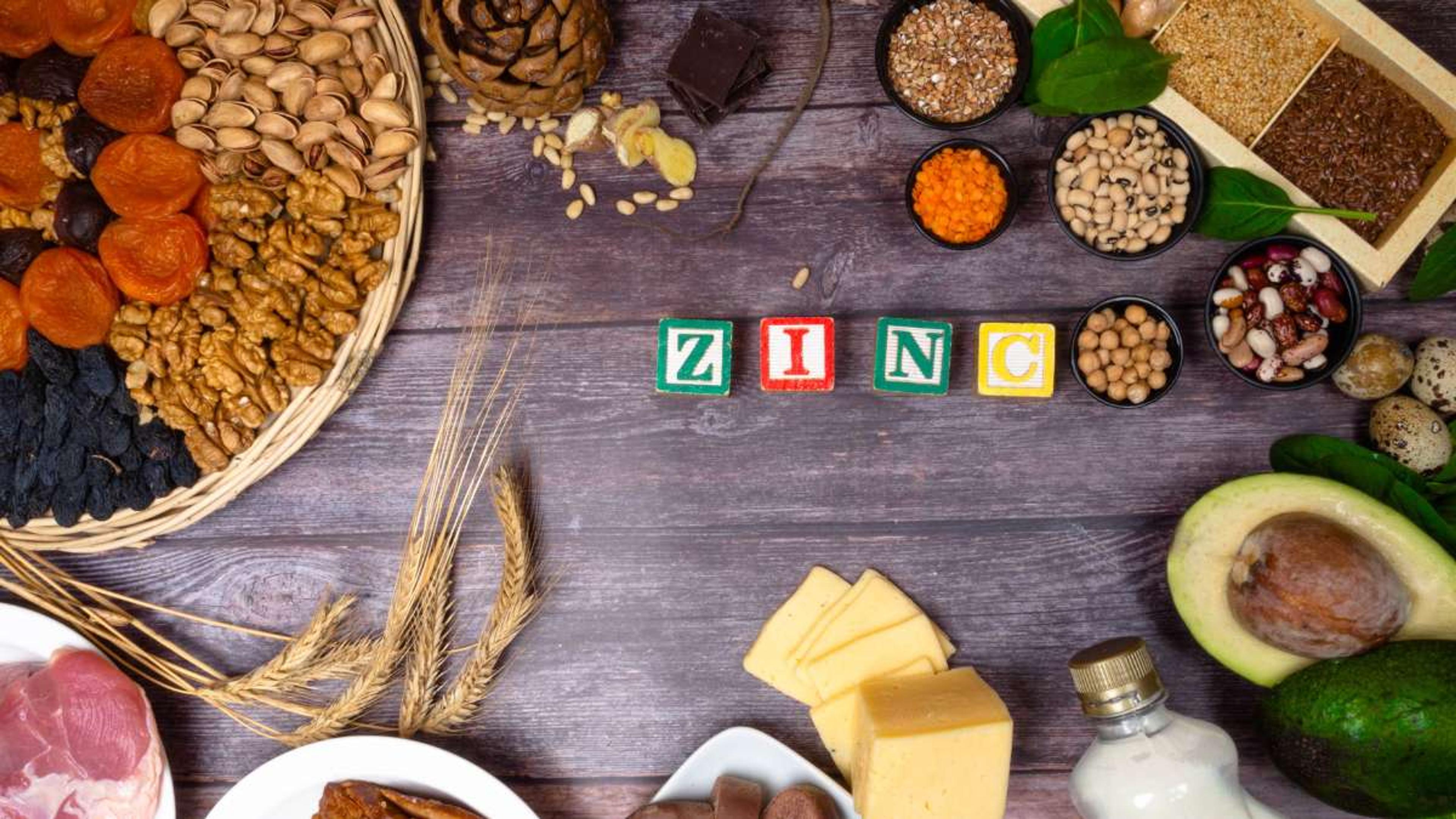
Zinc is a crucial trace mineral that plays a vital role in various bodily functions. This essential mineral supports skin health, aids the operation of enzymes, and facilitates cell division.
It also contributes significantly to immune function and metabolism processes. To maintain optimum health, your body requires consistent intake of this nutrient from food sources such as pumpkin seeds, beans, lentils and chickpeas.
Understanding what zinc does gives us an idea of how much we need daily. For adult men and women, the recommended dietary allowance (RDA) varies between 8-11 milligrams per day. Achieving this target ensures proper functioning of the immunity system as well as optimal skin health among other benefits linked to zinc consumption.
Notably for vegans or anyone observing a plant-based diet without any form of animal product like dairy or red meat; foods rich in zinc including tofu, hemp seeds and whole grain products are key considerations.
List of Zinc-Rich Plant-Based Foods
Legumes like chickpeas, lentils, black beans, and kidney beans are excellent sources of zinc in a plant-based diet.
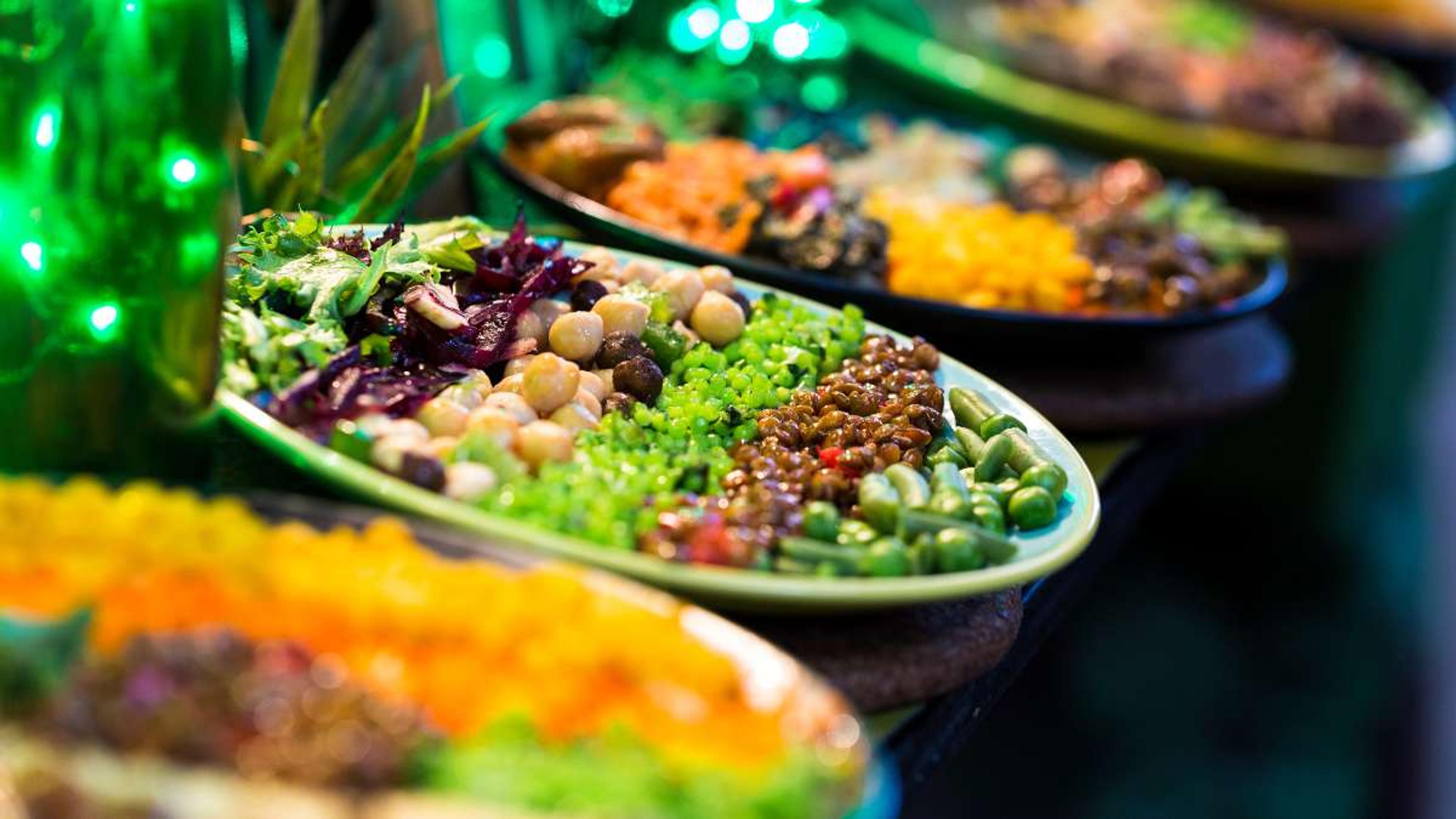
Legumes (Chickpeas, Lentils, Black beans, Kidney beans)
Legumes represent a hearty, health-boosting category of plant-based foods. Chickpeas, lentils, black beans, and kidney beans pack a significant zinc punch in every serving. They provide your body with the necessary trace mineral to aid metabolic functions and elevate immune system performance.
Incorporating legumes into meals isn't just about zinc; these food staples also deliver abundant fiber, folate, potassium and vegetarian protein. For instance, creating dishes with hummus or edamame can not only diversify your culinary options but also further increase your daily zinc intake.
The robust nutrient profile found in legumes such as beans and peas reinforces their worthiness for anyone looking for nutritious vegan foods.
Whole Grains (Quinoa, Brown rice, Oats, Wheat germ)
Incorporating whole grains into your everyday meal plan contributes significantly toward meeting daily zinc requirements. Foods like quinoa, brown rice, oats, and wheat germ are not only abundant with dietary fiber but also packed with important minerals like zinc.
These grains serve as powerhouses for nourishment by delivering a wealth of essential nutrients that support overall health. Consuming these plant-based foods regularly could help to elevate zinc levels while also boosting immunity and metabolism due to their rich content of B vitamins such as niacin, thiamin, and folate.
Consequently, whole grains should feature prominently in a balanced vegan diet aimed at optimizing the intake of key micronutrients like zinc.
Nuts and Seeds (Pumpkin seeds, Hemp seeds, Sesame seeds, Flaxseeds)
Pumpkin seeds, hemp seeds, sesame seeds, and flaxseeds are excellent plant-based sources of zinc. In fact, just one ounce of pumpkin seeds provides 14% of your recommended daily intake of zinc.
These nuts and seeds not only contain zinc but also offer other essential nutrients like healthy fats, protein, iron, calcium, vitamin E, and omega-3s. Additionally, sesame seeds can help balance hormones by boosting progesterone production.
So why not sprinkle these nutritious nuts and seeds on salads or add them to your smoothies for a tasty way to increase your zinc intake?.
Fortified Plant-Based Foods (Fortified breakfast cereals, Fortified plant milks)
Fortified breakfast cereals and fortified plant milks are excellent options for vegans and vegetarians looking to boost their zinc intake. These fortified plant-based foods are enriched with essential nutrients like zinc, iron, calcium, and vitamin B12.
They can serve as valuable sources of these nutrients, especially for those following a plant-based diet. Incorporating fortified breakfast cereals or plant milks into your daily meals can help ensure that you meet your recommended zinc requirements while enjoying a delicious and convenient option.
Vegetables (Spinach, Kale, Broccoli, Brussels sprouts)
Spinach, kale, broccoli, and Brussels sprouts are all packed with essential nutrients, including zinc. These vegetables make a great addition to a vegan diet when it comes to boosting your zinc intake.
Spinach is not only rich in zinc but also contains high amounts of vitamin K, which plays a crucial role in blood clotting and bone health. Kale is another leafy green vegetable that offers both zinc and vitamin K benefits.
Broccoli stands out as an excellent source of vitamins C and K as well as phosphorus and potassium. Lastly, Brussels sprouts are known for their versatility and nutritional value; they provide fiber along with essential minerals like zinc.
These vegetables fit perfectly into "The Ultimate Guide To Zinc-Rich Vegan Foods: Boost Your Health With Plant-Based Sources" because they offer the necessary nutrients while being plant-based options.
Fruits (Avocado, Kiwi, Guava)
Avocado, kiwi, and guava are all excellent sources of zinc among fruits. Avocados in particular have the highest zinc content compared to other fruits. Including these zinc-rich fruits in your plant-based meals can help ensure that you're getting enough of this essential mineral in your diet.
Other fruits such as blackberries, pomegranates, raspberries, cantaloupes, apricots, peaches, and blueberries also contain significant amounts of zinc. So be sure to include a variety of these nutritious fruits in your daily meals to boost your overall intake of this important trace mineral.
Miscellaneous (Nutritional yeast, Pumpkin puree, Tahini)
Nutritional yeast, pumpkin puree, and tahini are three delicious additions to your plant-based diet that can help boost your zinc intake. Nutritional yeast is a popular choice among vegans for its cheesy flavor and versatility.in recipes.
Just two tablespoons of nutritional yeast provide about 2 milligrams of zinc. Pumpkin puree is not only rich in vitamin A and fiber but also contains zinc. One cup of pumpkin puree contains approximately 1 milligram of zinc.
Tahini, made from ground sesame seeds, is another great source of zinc, with just one tablespoon providing around 0.7 milligrams. These miscellaneous foods not only add flavor to your meals but also contribute to meeting your daily zinc requirements for optimal health.
Zinc Supplements for Plant-Based Diets
Consider zinc supplements when your plant-based diet may not provide enough zinc, and choose the right supplement based on safety and dosage recommendations.
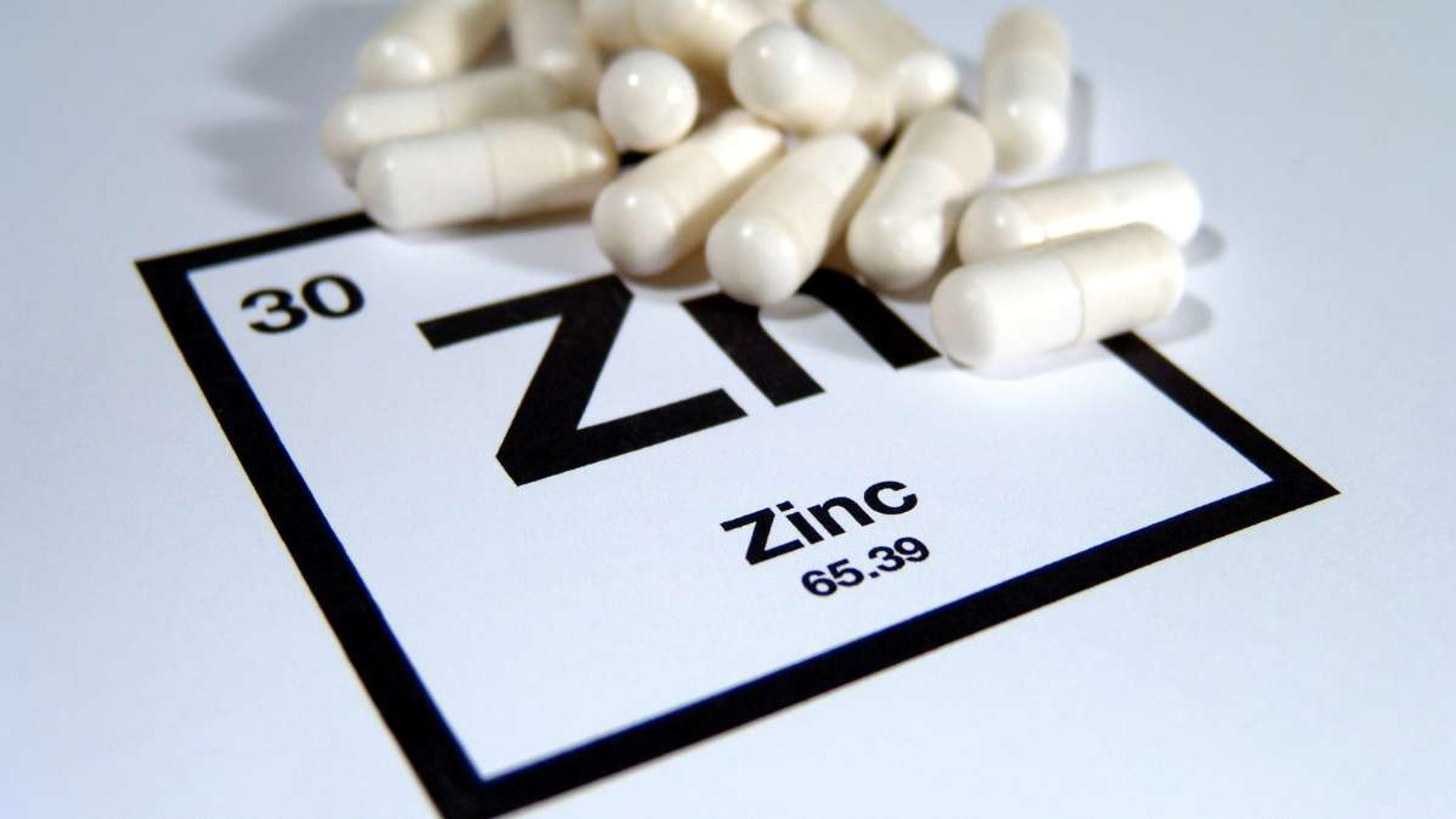
When to Consider Zinc Supplements
Consider zinc supplements if you follow a plant-based diet and are concerned about meeting your zinc requirements. Plant-based diets may lack some of the best sources of dietary zinc, such as red meat and dairy products.
Zinc deficiency can lead to health issues, including impaired immune function and delayed wound healing. To ensure you're getting enough zinc, it is recommended to consult with a healthcare professional who can assess your individual needs and determine if supplementation is necessary.
Remember that the recommended daily intake of zinc for adults ranges from 8-11 mg for women and 11-15 mg for men, so it's important to address any potential deficiencies proactively.
Choosing the Right Zinc Supplement
To choose the right zinc supplement for a plant-based diet, consider the following factors:
- Vegan Certification: Look for supplements that are specifically labeled as vegan to ensure they do not contain any animal-derived ingredients.
- Bioavailability: Opt for zinc supplements that are easily absorbed by the body. Look for forms like zinc gluconate, zinc picolinate, or zinc citrate, which have high bioavailability.
- Dosage: Consult with a healthcare professional or registered dietitian to determine the appropriate dosage of zinc supplement for your specific needs. The recommended daily allowance (RDA) for zinc is 11 mg for adult men and 8 mg for adult women.
- Third-Party Testing: Choose supplements from reputable brands that undergo third-party testing to ensure quality and safety.
- Combination Products: Consider a multivitamin or mineral supplement that includes zinc along with other essential nutrients to support overall health and wellbeing.
Safety and Dosage Recommendations
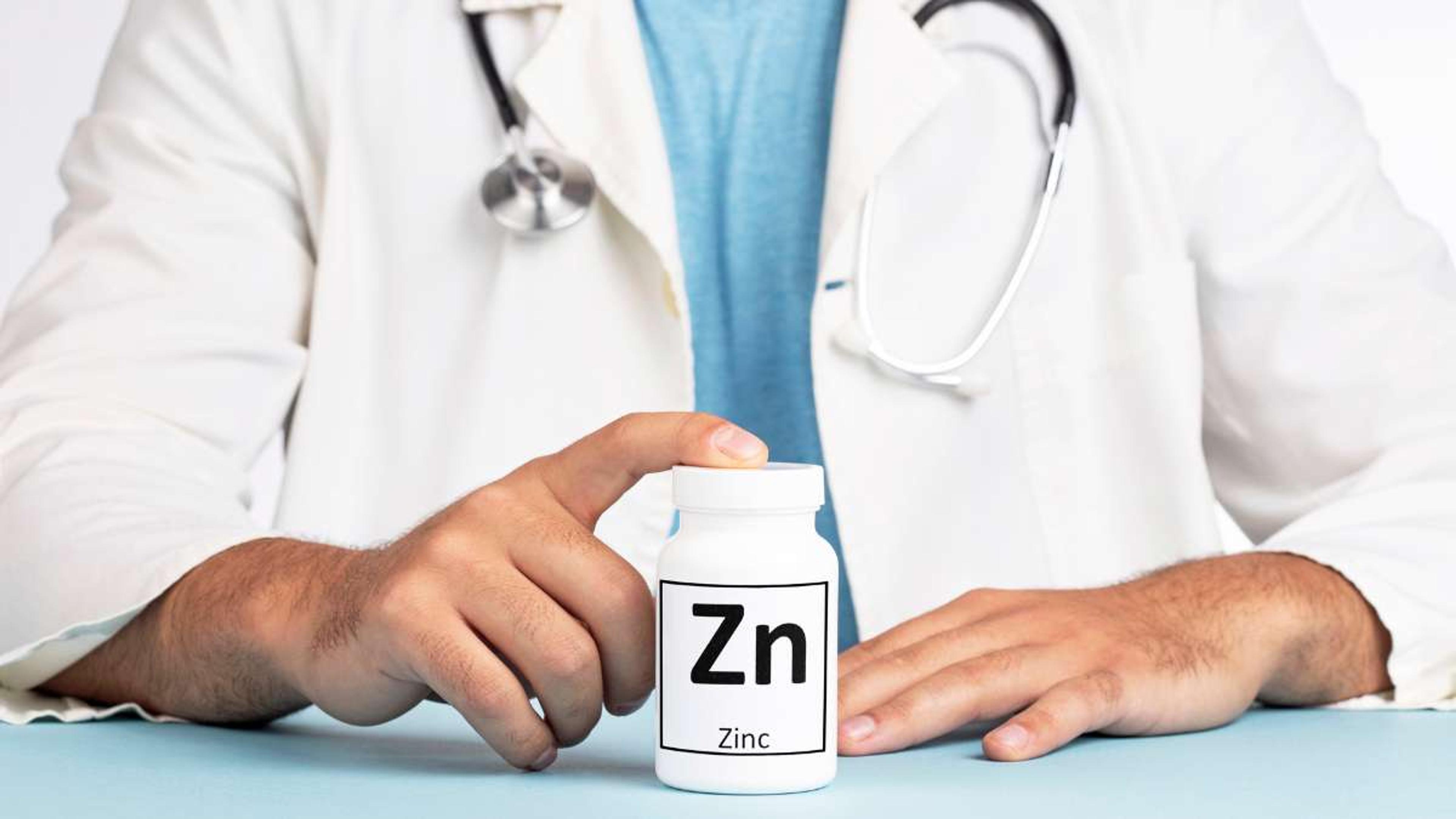
It is important to note that there are no specific safety and dosage recommendations for zinc supplements in plant-based diets mentioned in the content. However, it is always advisable to consult with a healthcare professional or registered dietitian before starting any new supplement regimen.
They can assess your individual needs and provide guidance on the appropriate dosage of zinc based on factors such as age, sex, health status, and dietary intake. Remember to follow their recommendations closely to ensure safe and effective use of zinc supplements in your vegan lifestyle.
Health Benefits and Symptoms of Deficiency of Zinc

Consuming enough zinc from a healthy diet is crucial for maintaining overall health. This essential mineral plays a vital role in various bodily functions, including immune system function, wound healing, and even hair growth.
Adequate zinc intake can help strengthen the immune system and reduce the risk of infections. On the other hand, a deficiency in zinc can lead to several symptoms such as impaired immune function, delayed wound healing, hair loss, and changes in taste or smell.
Therefore, it is important to ensure that you are getting enough zinc through your diet or supplements to support these crucial health benefits and prevent deficiencies.
How to Incorporate Zinc-Rich Foods into a Vegetarian Diet
- Include a variety of legumes such as beans, lentils, and chickpeas in your meals.
- Incorporate whole grains like quinoa, brown rice, and oats into your daily diet.
- Snack on nuts and seeds such as pumpkin seeds, hemp seeds, and sesame seeds.
- Add fortified plant - based foods like breakfast cereals and plant milks to your meals.
- Increase your intake of zinc - rich vegetables like spinach, kale, broccoli, and Brussels sprouts.
- Enjoy fruits like avocado, kiwi, and guava which are also good sources of zinc.
Enhancing Zinc Absorption in a Vegan Diet
To enhance zinc absorption in a vegan diet, it is important to reduce phytic acid levels by soaking or sprouting grains and legumes before cooking them. Pairing zinc-rich foods with vitamin C sources like citrus fruits can also improve absorption.
Additionally, choosing cooking methods that promote better zinc absorption, such as steaming or fermenting vegetables, can help maximize the nutrient's uptake by the body.
Reducing Phytic Acid
Soaking oats, nuts, beans, and sprouting seeds can lower phytic acid levels in plant-based foods. Phytic acid is a natural substance found in seeds that can hinder the absorption of nutrients like zinc.
By soaking or sprouting these foods, you can help reduce the presence of phytic acid and enhance the bioavailability of zinc. This means your body will be able to absorb more zinc from these plant sources, ensuring you meet your daily requirements for this essential mineral.
So go ahead and incorporate soaked oats, sprouted beans, and nuts into your diet to maximize your zinc intake!
Pairing Zinc-Rich Foods with Vitamin C
Pairing zinc-rich foods with vitamin C is a smart strategy to enhance the absorption of zinc in a vegan diet. Vitamin C helps convert plant-based sources of zinc into a form that is easier for the body to absorb.
By combining foods like lentils, chickpeas, or tofu with fruits rich in vitamin C such as kiwi or guava, you can maximize the benefits of both nutrients. Other good sources of vitamin C include citrus fruits and bell peppers.
So go ahead and create delicious and nutritious combinations that will boost your overall health!
Cooking Methods for Better Zinc Absorption
Cooking methods can play a role in enhancing the absorption of zinc from plant-based foods. Here are some techniques to help maximize your zinc intake:
- Soaking, Sprouting, and Fermenting: Soaking legumes, grains, nuts, and seeds before cooking can reduce phytic acid levels, which can inhibit zinc absorption. Additionally, sprouting and fermenting these foods may further enhance zinc bioavailability.
- Cooking with Vitamin C-rich Ingredients: Pairing zinc-rich foods with ingredients high in vitamin C can enhance the absorption of this essential mineral. For example, squeeze lemon juice over cooked legumes or add bell peppers to your stir-fry containing zinc-rich vegetables.
- Steaming and Boiling: Cooking methods such as steaming and boiling help retain more nutrients compared to frying or roasting. These gentle cooking techniques can preserve the bioavailability of zinc in plant-based foods.
- Avoid Excessive Heat and Overcooking: High heat and prolonged cooking times may reduce the zinc content in foods. To maintain optimal levels of this trace mineral, avoid excessively heating or overcooking your plant-based meals.
- Consider Using Cast Iron Cookware: Cooking with cast iron pots and pans can contribute small amounts of dietary iron to your meals, potentially improving the absorption of non-heme iron (found in plant-based sources) while indirectly aiding zinc absorption.
Conclusion
Incorporating zinc-rich plant-based foods into a vegan diet is essential for maintaining optimal health. With the wide variety of legumes, whole grains, nuts, seeds, and fortified foods available, vegans have plenty of options to meet their daily zinc needs.
By being mindful of their zinc intake and considering supplementation if necessary, individuals can ensure they are reaping the numerous health benefits that come with sufficient zinc levels in the body.
So go ahead and boost your health by including these delicious plant-based sources of zinc in your diet today!
FAQs
1. What are some zinc-rich vegan foods?
Some examples of zinc-rich vegan foods include legumes (such as chickpeas and lentils), nuts and seeds (such as pumpkin seeds and cashews), whole grains (such as quinoa and brown rice), tofu, tempeh, and fortified plant-based milk.
2. How much zinc do I need in my diet?
The recommended dietary allowance for zinc varies depending on age and sex. For adult males, it is 11 mg per day, while for adult females it is 8 mg per day. Pregnant or breastfeeding women have higher needs at 11-13 mg per day.
3. Can a vegan diet provide enough zinc?
Yes, a well-planned vegan diet can provide enough zinc. By including a variety of zinc-rich plant-based foods in your meals and ensuring adequate intake through portion sizes, you can meet your daily needs without relying on animal products.
4. Are there any factors that may affect zinc absorption from plant-based sources?
Yes, there are factors that can impact the absorption of zinc from plant-based sources. Phytates found in whole grains and legumes can bind to zinc and reduce its bioavailability. However, soaking, fermenting or sprouting these foods can help reduce phytate content and enhance the absorption of zinc.

